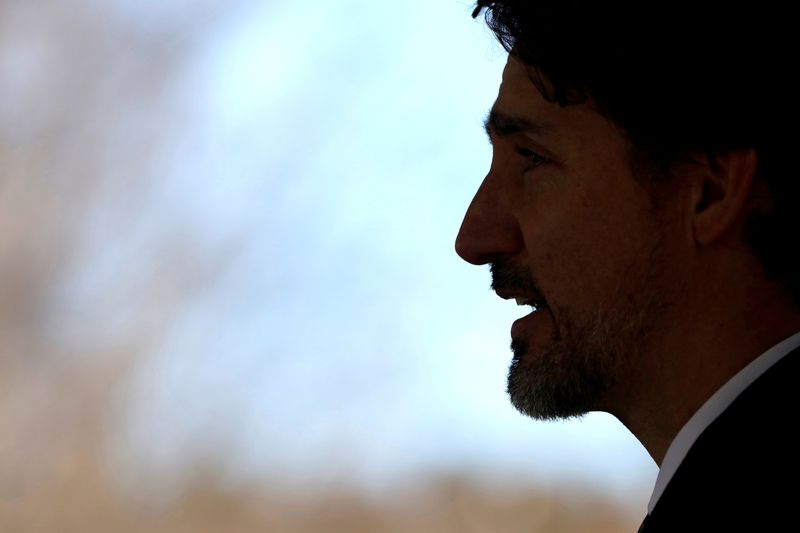By David Ljunggren and Kelsey Johnson
OTTAWA (Reuters) - Canada on Wednesday said it would temporarily loosen rules for an emergency wage subsidy program to ensure more businesses qualify, while jobless claims triggered by the coronavirus outbreak soared beyond 4 million.
Prime Minister Justin Trudeau said firms would have to show their year-on-year revenues had dropped by 15% in March, half the previous level, to claim a 75% wage subsidy for employees.
From April, businesses will again have to demonstrate a 30% annual drop.
"Not all businesses operate the same way and that is why we are making changes to include as many of you as possible," Trudeau said during a daily briefing in front of his Ottawa residence.
Finance Minister Bill Morneau told reporters in Toronto the qualifying level was being cut for March because the outbreak only began to take its toll in the middle of the month.
The Canadian Chamber of Commerce welcomed the changes but noted the subsidy package has to be approved by Parliament, which was suspended last month.
The ruling Liberals and opposition parties have yet to agree on how to recall legislators.
Earlier on Wednesday, Air Canada announced it would adopt the subsidy for its 36,000 Canada-based workforce in a bid to keep employees on payroll.[nL3N2BW015]
Officials said 4.26 million people had applied for all forms of emergency unemployment since March 15. Canada's workforce is just over 20 million people, suggesting the jobless rate will jump to 25% from the current 5.6%.
Statistics Canada will release March employment data on Thursday and Trudeau said "it's going to be a hard day for the country."
As Ottawa worked to cushion the blow of the outbreak, Canada's public health agency said the death toll rose to 401 from 345 on Tuesday, and total cases were 18,447, compared with 17,063 a day earlier.
Ontario Premier Doug Ford said his "patience has run thin" with testing issues in the country's most populous province, which has among its lowest levels of testing.
"I'm going to be on this like a dog on a bone," Ford told reporters, promising Ontario would ramp up as of Thursday.
Ontario will also speed construction of critical health infrastructure projects, Ford said.
British Columbia, where case totals are much lower, said it will require returning travellers to present plans on arrival for 14 days of self-isolation, to be approved by government officials.
If a plan is not approved or if travellers do not present one, they will be placed in a government-run quarantine, Premier John Horgan said.

"We need to make sure that all of the work Canadians have been doing (to reduce risk) is not erased by people who may come back and not have the same level of perseverance," Horgan said.